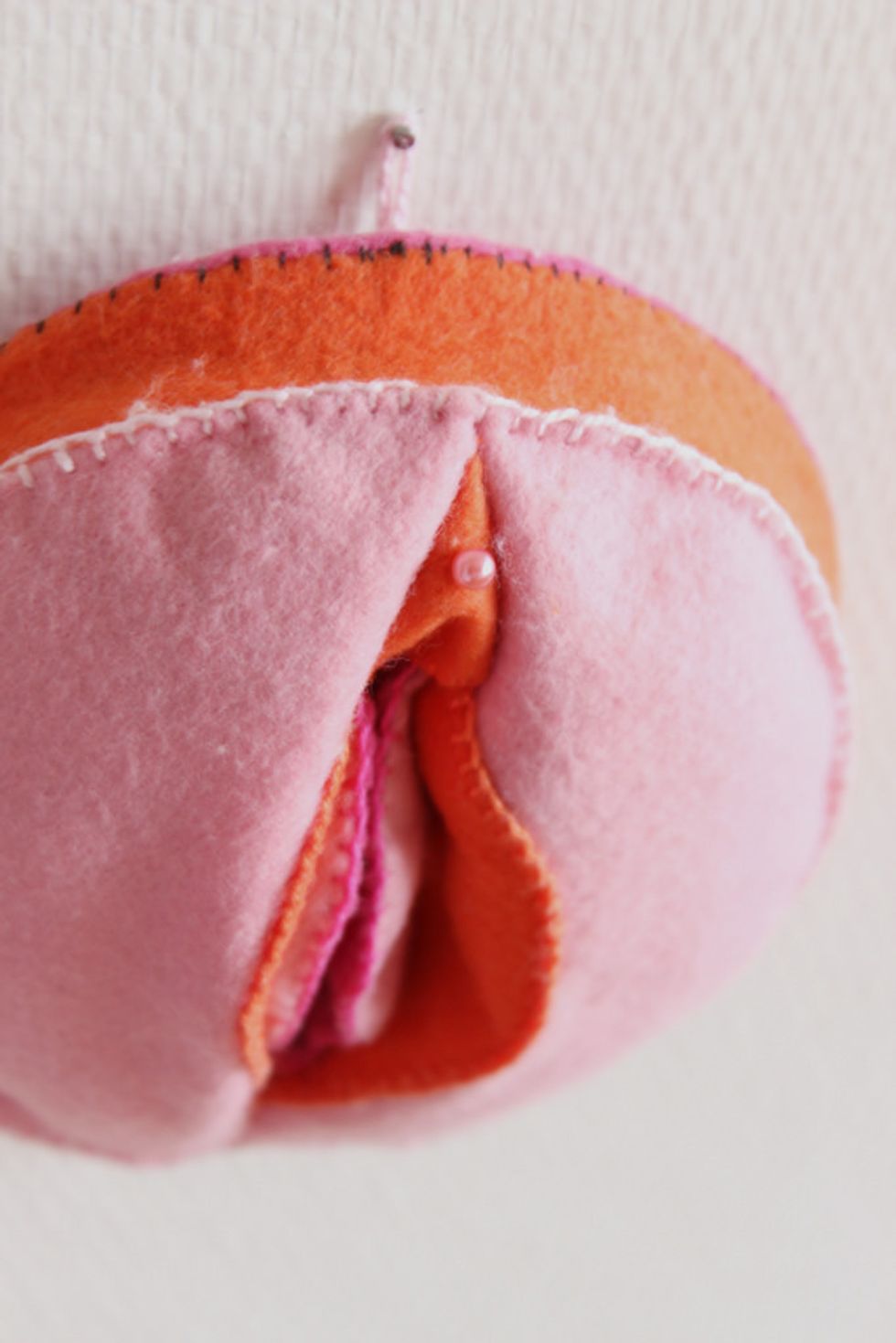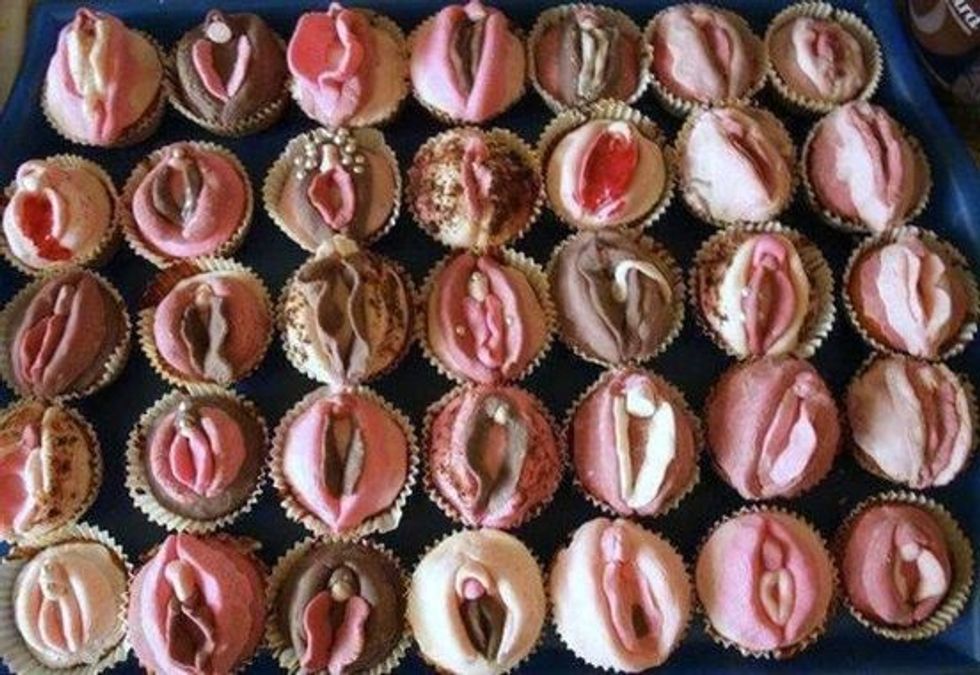A common complaint from girls and guys alike is that vaginas are gross, unhygienic, and smell bad. So I'm here to clear up the rumors. A vagina is supposed to smell like... well, a vagina, not rainbows and butterflies or oceans and meadows or any other sort of artificial scent. If you're doing things to "improve" the way your vagina smells, you're probably causing yourself way more problems than you would have originally had.
Important note: If it smells persistently yeasty, fishy, metallic, musky, or rotten, that's a sign you may have a serious infection and you should seek medical assistance.
The Basic Biology
First things first, there's a difference between your vagina and your vulva. "Vulva is actually the correct term for all of the external organs, including the mons pubis..., the labia majora and minora, the all-important clitoris, the external openings of the urethra ... and the vagina."
While it's okay to use mild soap on your vulva (the outside), no scented or dyed products should ever enter your vagina (the internal part) as they could cause serious infections.
Your vagina is super acidic (between 3.5 and 4.5 on the pH scale, about the same pH as tomato juice or orange juice. Soap has a pH around 9 or 10, which is great for cleansing your skin but can seriously mess up that natural balance of your vagina, so soap should definitely never be put inside.
The Problem

Your vagina truly smells the way it's supposed to smell. It isn't supposed to smell like a meadow or flowers or any other sort of artificial scent.
Soap is bad for the bacteria and the pH in your vagina, even without perfumes and dyes. However, the chemicals in perfumes and dyes can cause allergic reactions or other types of irritation, which is bad enough on your external skin but can cause some serious pain and medical problems on such a sensitive part of your body.
Don't douche unless your doctor tells you to. Douching kills the healthy bacteria that live in your vagina and leaves you prone to infections from the chemical imbalance. Douching can also leave your body vulnerable to STD's because you won't be able to fight off the infection due to missing components in your vagina.- messes with natural lubrication, pH, and healthy bacteria
Specifically branded feminine washes aren't approved by doctors and contain a number of unknown chemicals, whose effects we don't really consider before trying them. They're not clinically sound and many scientists suggest avoiding them. "The vagina is a perfectly-balanced ecosystem... The best thing you can do is to not interfere with this process."
The Solution

WATER is your best friend. Drink water and keep hydrated to keep your pH levels nice and balanced out. Wash your vulva with water and only use a mild soap on the outside if you decide to.
Take steps to avoid infections: pee after sex and after being in a swimming pool, hot tub, or another body of water. Change out of a swimsuit as soon as you can. Wear primarily cotton underwear.
Avoid feminine wash soaps, bubble baths, and other good-smelling, dyed products. They truly do more harm than good.
Diet changes can also help boost your vaginal health. Eat yogurt, specifically Greek yogurt, or take a probiotic supplement to boost the growth of good bacteria in your vagina. Fruits, vegetables, and fatty foods can also help boost your gynecological health. Check out this list for the different types of foods and their uses.
At the end of the day, your vagina is perfect the way it is. We all have different bodies and they all behave in different ways. Keeping yourself clean, healthy, and safe is the best thing you can do for your body. Beyond that, it's up to you to love and care for the body you're in. After all, you only have one.




















